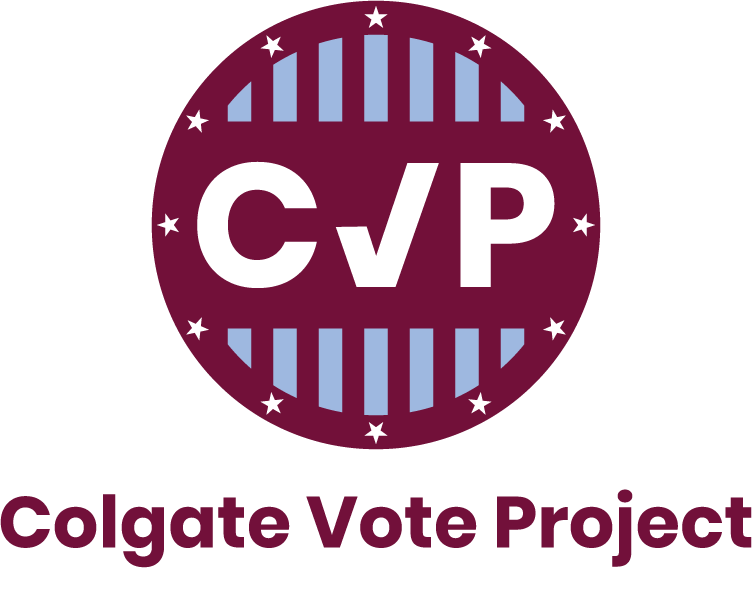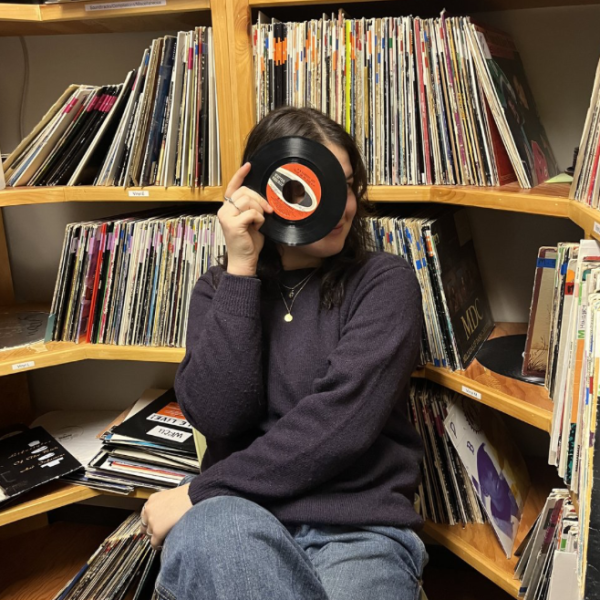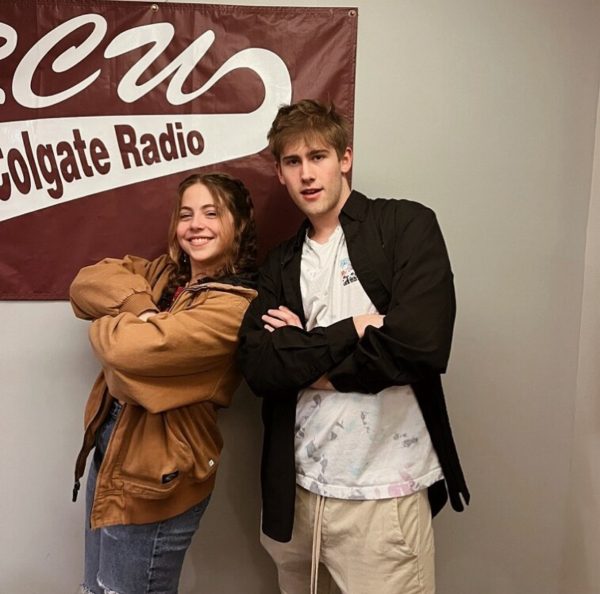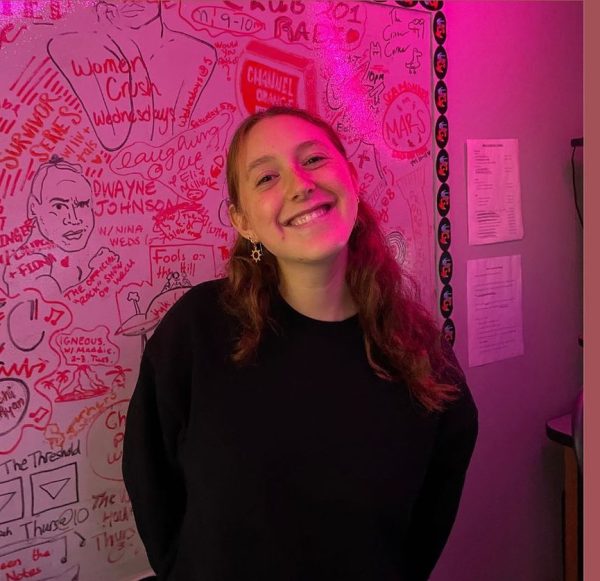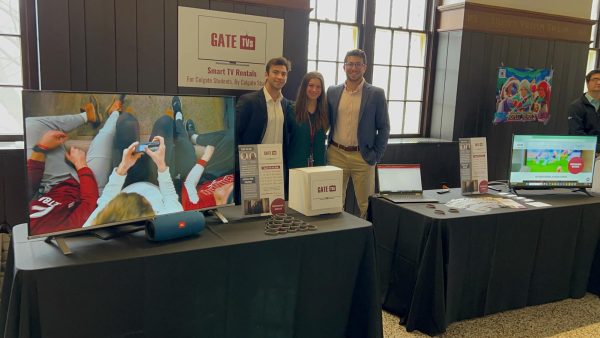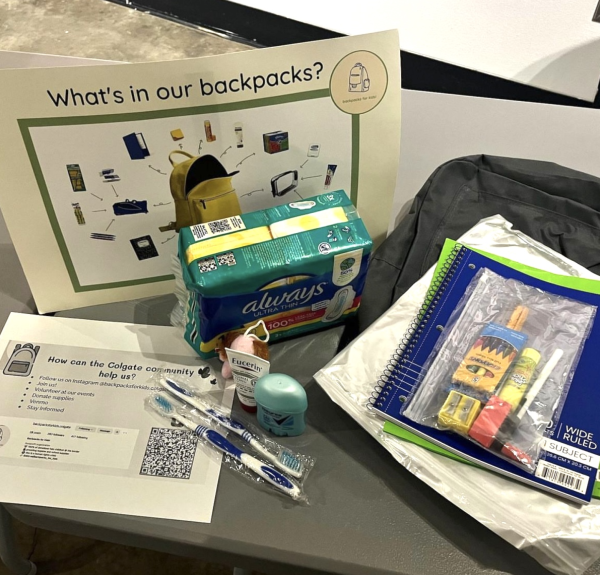The Changing Voting Culture Within the Colgate Community
Election day looms right around the corner, a mere 12 days away. For most students on campus, this will be the first presidential election they have been eligible to vote in. Taking place in the context of a nation that is seemingly divided more and more every day across party lines, this election is certainly a contentious one.
In the past, there has been a certain level of complacency among the Colgate student body when it comes to voting. For instance, in a report that details voting registration and voting histories of Colgate students for the 2014 and 2018 midterm election, there was a sizable gap between those who registered to vote and those who actually cast a ballot. In 2018, 78.9% of students registered whereas only 40.6% voted. In another report from 2016, the same pattern emerged. In 2016, 81.4% registered while 48.2% cast a ballot. On the bright side, there is a trend in increasing voter turnout. In 2014, only 10% of students cast their vote — a shockingly low turnout that would increase by 25.5 points in 2018. This data emphasizes that it is not merely a question of presidential versus midterm elections in terms of students turning out to vote. Overall, Colgate students are less driven to cast ballots in comparison to other Bachelor’s institutions, the rate of voting in 2018 a solid 7.1 points below the average.
Co-leader of the Colgate Vote Project (CVP) Eliza Lloyd reflects on this trend.
“I think it is partly due to the fact that we live in a bubble and are inconsistently aware of the problems that lie outside of Hamilton,” she said. “I think we need to have more accountability when it comes to voting and recognize that our vote does matter, both on the local and federal level.”
Lloyd is not alone in her critique of the bubble that Colgate students often find themselves living in and the complacency that ensues in the context of political involvement or activeness.
Senior Annika Browning comments, “Maybe it’s the Colgate bubble, or being away from home, but I feel like Colgate students are more disconnected from taking an active part in politics. It is easy for people our age (especially in private institutions) to think that politics do not affect them or are not something they have to worry about, but I think after COVID[-19] and the last two years, more people are taking an active role in making their voices heard in elections.”
Browning’s thoughts on the privilege afforded to many students in attending a private institution are echoed by many others on campus. Fellow senior Erin McCormack expressed a similar sentiment.
“The majority of students at our [predominantly white institution] do not realize what is actually at stake,” she said. “They did not educate themselves nor care enough to cast a ballot. I am happy to see this is not the sentiment this year. I also voted in the midterms here in Hamilton. I realize that because we are in a very rural community, it can be hard to access. But in my opinion, it’s not that hard. Put in the effort to fill out a two minute form and stand up for what you believe in.”
All seem to agree that this year we can expect to see a marked change. Lloyd and the CVP have received more traction than ever before. More students have been reaching out via social media or email to ask questions about the process of voting, particularly from underclassmen who have never voted before. They have, as a club, visited countless FSEMs and first/second year classrooms to introduce students to the voting process. This year they have also partnered with the student athlete advisory committee (SAAC) to set a goal of 100% athlete voter registration.
As students are commenting, part of this uptick in voter involvement can be prescribed to the turmoil that has plagued our country for the past months. With increasing campaigns on social media and a general push among our generation to be involved on issues and controversies like climate change, racism and injustice, women’s bodily rights, voter suppression or health care, voting is at the forefront of student conversations.
“I do believe there will be a marked increase [in voter turnout] this year given that it is a presidential election, how nationalized the issues are and how much is on the line,” Senior Hans Lunsgaard said.
There is of course a fear that this sentiment of an uptick in voter participation may be performative. It is simple to post something to Instagram or say you registered to vote. The challenge is, as past data has shown, that there is a big discrepancy between students registered to vote and students actually taking to the polls.
Junior Christine King expressed her concern via Zoom while on an Oct. 13 panel discussion on voter access and suppression.
“We have created an echo chamber through social media and this constant push to vote. I know a lot of people who have claimed to register to vote but don’t actually plan on voting. Many have mentioned to me, in confidence, that they will not be voting because they don’t have confidence in either candidate. Yet, these people are still continuing to post on their stories,” she said.
In response, political science professor Sam Rosenfeld optimistically countered King’s concern.
“If there is a social sanction that is perceived by your peers for not participating this year, such that they feel compelled to say they are participating even when they are not, that’s a good thing! There is political science research about this — peer pressure turns out the vote,” he said.
Simply put: the culture on this campus does seem to be changing. In such a contentious election year, Colgate students feel more impassioned than before, and whether it is performative or not, there is a marked cultural shift towards political engagement. However, some students remain cautious of peer pressure to vote a certain way, particularly on a liberal leaning campus like Colgate’s.
Sophomore Lucy Bischoff considered this.
“There are definitely benefits of this kind of college campus voting culture, but I think it can also become problematic,” she said. “When you are constantly surrounded by like-minded people (in this case, a very liberal environment), it’s easy to forget that Colgate is not representative of the greater U,S. population. It’s important to remember that the political culture of your circle is likely a lot more biased than you would think.”
Browning was similarly cautious.
“I know that the political culture at Colgate is more visibly left-leaning, and this is not fully representative of the entire student community. I like to think that this is a good thing, but that is because I align with the majority beliefs. I think it is important for students at Colgate to be able to discuss and share their different political beliefs without shutting out perspectives that do not align with their own — which right now, seems more difficult than ever,” she said.
This year, many students chose to re-register in Madison County as opposed to their home state. The CVP was contacted by many students asking how to successfully go about this, in search of stamps to mail in registration forms to the Madison County Board of Elections that were due Oct. 9..
McCormack was one such student who decided to re-register in Madison.
“I decided to register to vote in Madison county because I realize that the election for the congress NY-22 seat is highly contentious right now,” she explains. “I think it is our duty as members of the Madison County community to act up and speak up against the racist and inherently discriminatory practices that the previous incumbent, Tenney, speaks for. This is the most highly contested seat in Congress right now; This is where our vote counts.”
Bischoff also chose to change her registration to Madison county.
“After learning more about the Brindisi campaign and the race against Claudia Tenney, I wanted to vote as a Democrat in this district,” she said. “There were no close races in my home district in Westchester, N.Y. and I am excited to know that I am supporting democratic campaigns in a more competitive district.”
Genevieve McCarthy, a senior who interned with Brindisi last year, feels passionate about the congressional race between Brindisi and Tenney as well.
“I was prompted to re-register because I want to vote for Anthony Brindisi especially after how close it was with Claudia Tenney [last election] and seeing how many signs she has all around. It’s one of the most expensive house races in the country this year because people on both sides are funneling money to help or hurt Claudia Tenney because of her connections with Trump,” she said.
Increased exposure to political issues and candidates motivates students to vote, no matter what side they are on. Voting is, as the CVP states, an important habit to make — not just for presidential elections or national ones. Lloyd emphasizes how the local elections are similarly important.
“This year, young voters make up about 10% of the electorate. We have a real chance to make our voices heard and dictate the type of government we’d like to see that will reflect our values. We want to remind students that voting is a privilege, just as much as it is a responsibility. If you don’t vote, you forfeit your right to complain that your representatives or the current administration doesn’t reflect your values,” she said.
If you have questions about the voting process, feel free to email [email protected]. They provide stamps and envelopes that can be found in the mail room (just ask someone) or by emailing them. Their Instagram can be found at @colgatevoteproject where students can get reminders about important deadlines or upcoming events they host. The important takeaway remains quite straightforward: Colgate students must get out to the polls and vote. However you vote, just do it. Have your voice heard.


